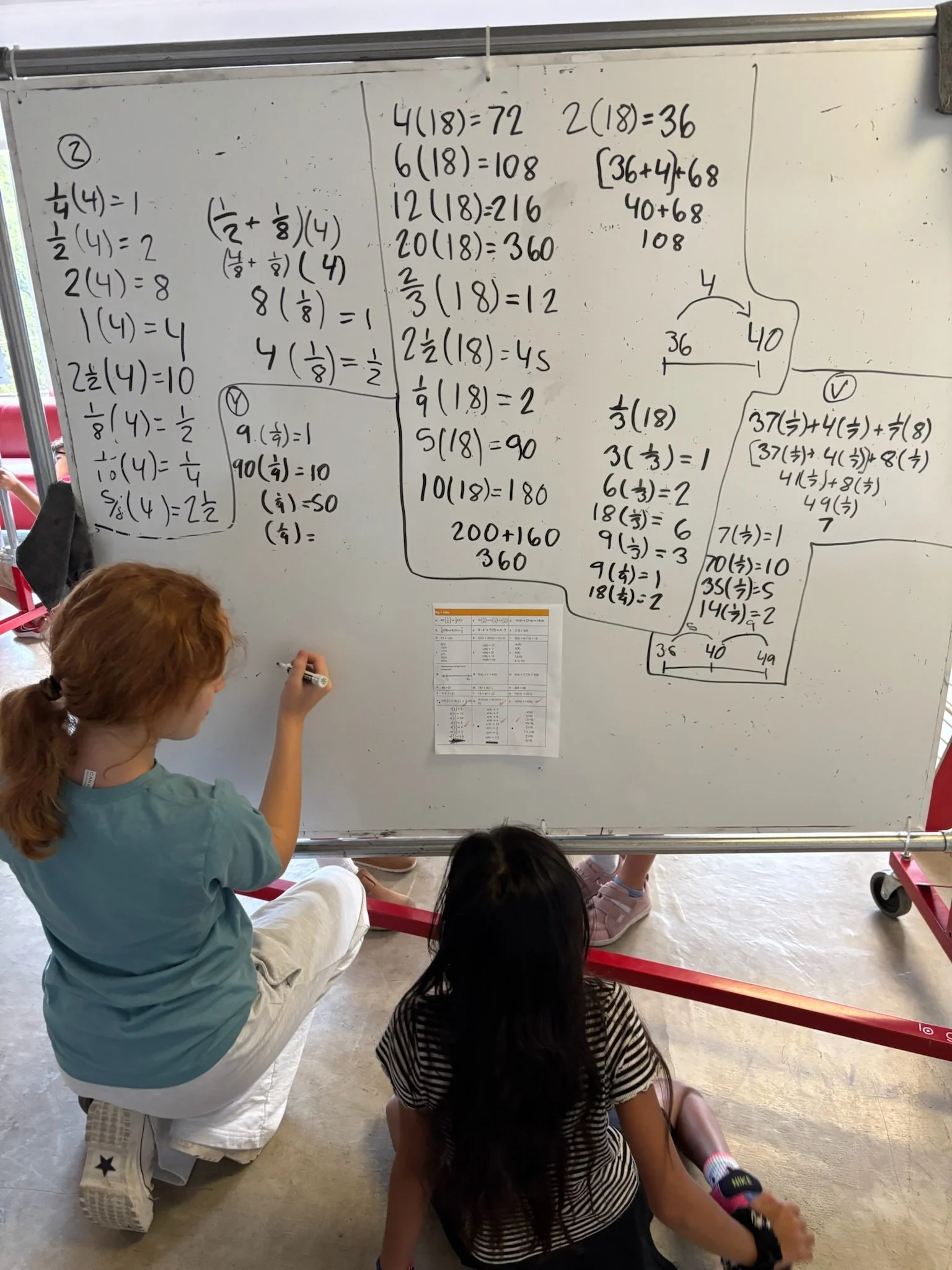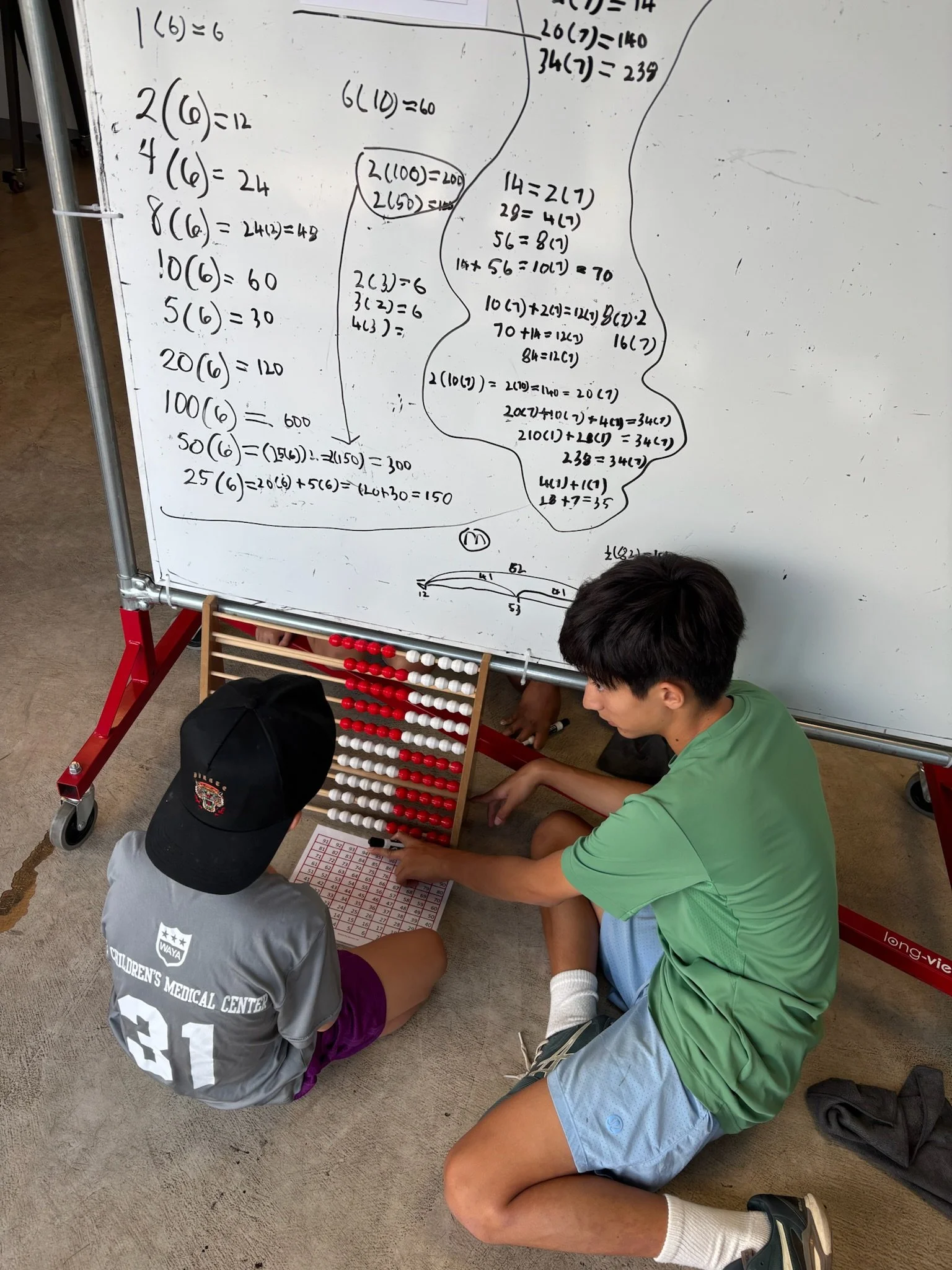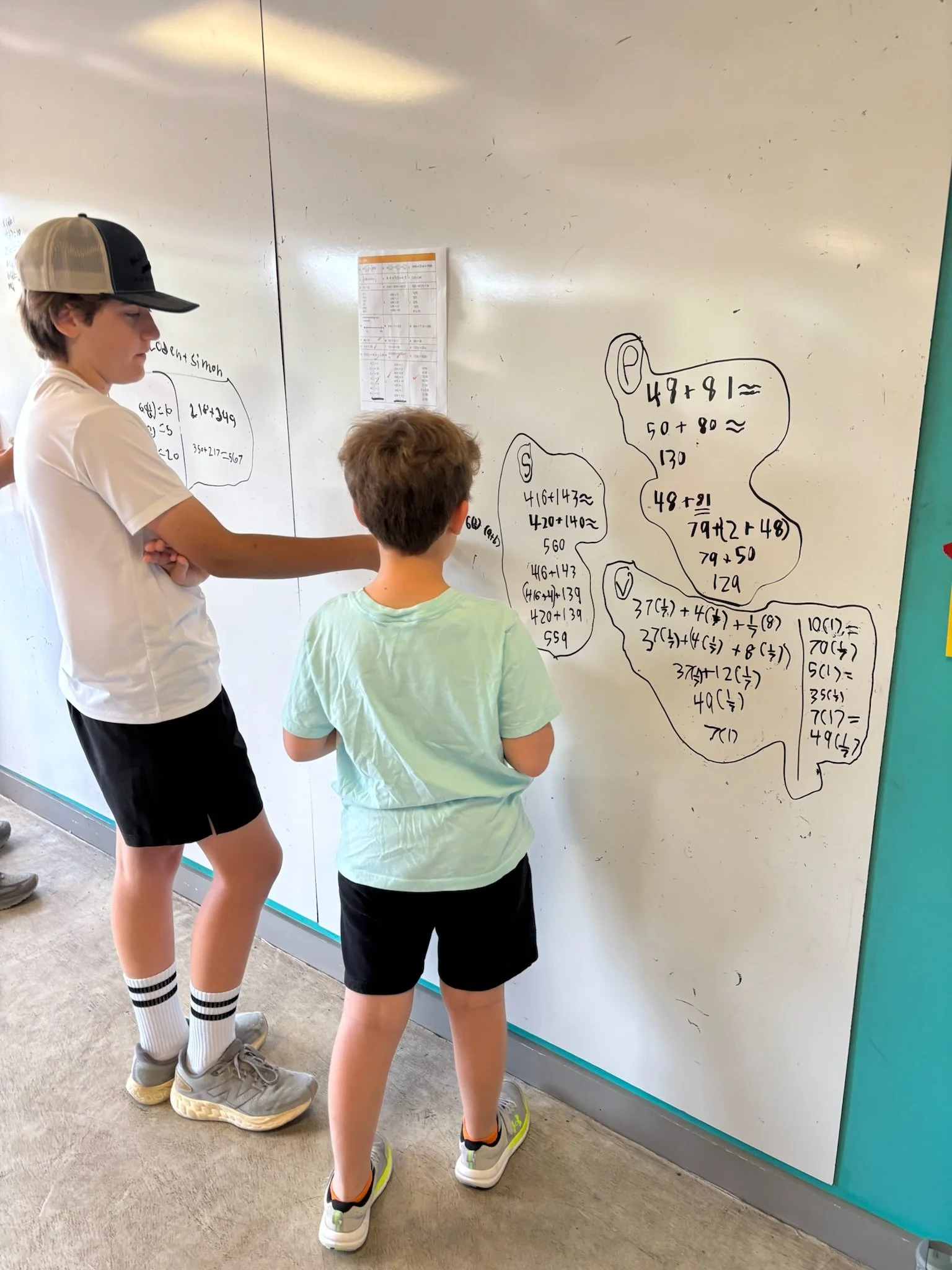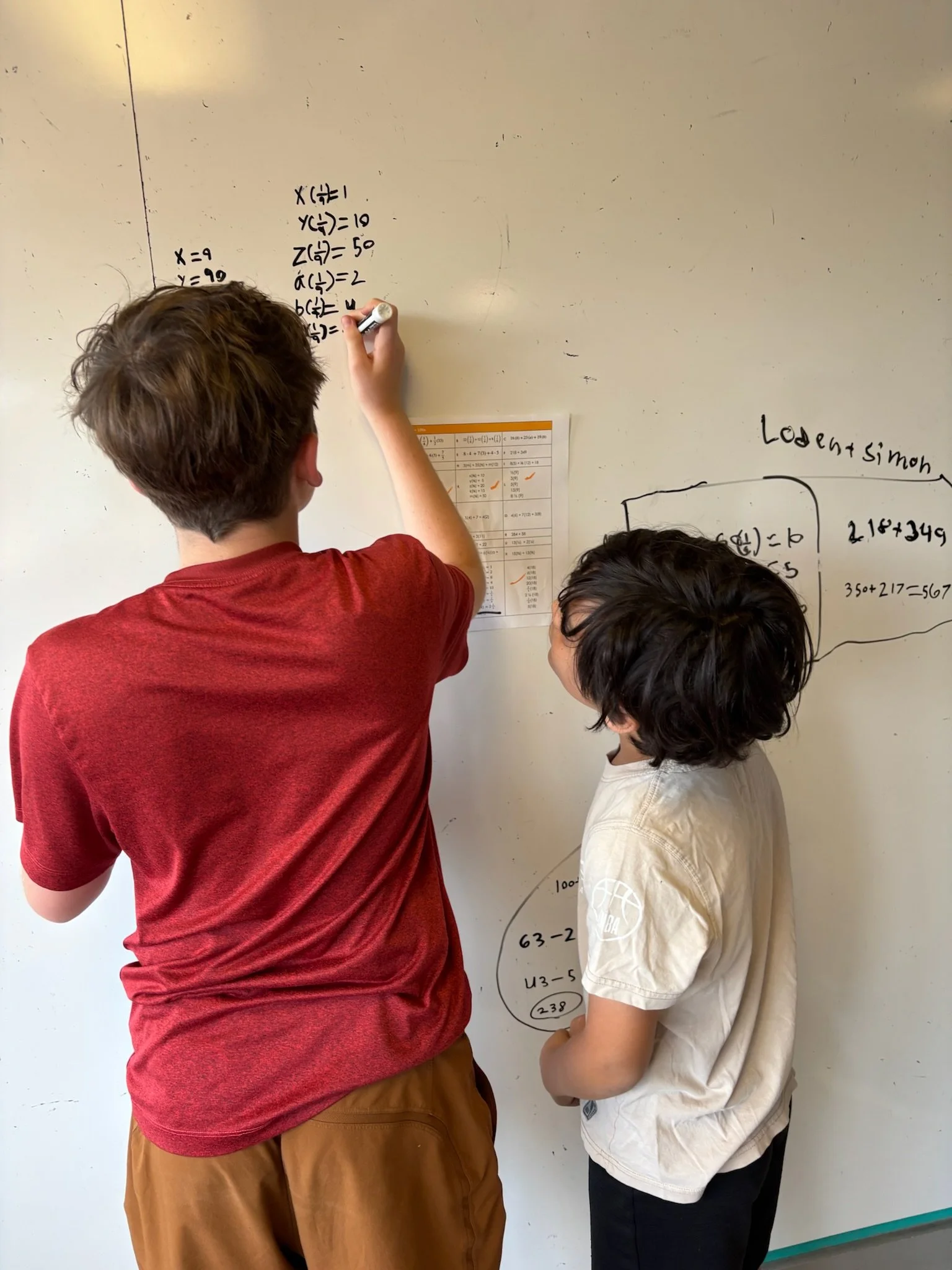Bigs Reflect on Their Mathematical Journeys
It’s Day One! This morning kicked off the 2025-26 iteration of Long-View’s Big + Little Math. For the past six years, a group of Long-View’s older mathematicians (known as Bigs, typically 7th and 8th graders) have met with a group of the youngest (known as Littles, typically 2nd and 3rd graders) in partnerships every Thursday morning from 8:30-9:30. As detailed in an earlier post by Astrid, one of Long-View’s first Bigs, the partners work through a studio set together, and then, with support from teachers, they reflect and debrief on the experience in their respective age groups.
The benefits to Littles in this scenario come easily to mind: a younger learner builds mathematical understanding in conversation with an older learner whose experience and dedicated mentorship are sure to inspire. For the Bigs, it’s also easy to recognize how this experience in the cognitive and emotional work of teaching can be so beneficial. But what does being a Big do for these older learners as mathematicians themselves?
One week ago, the new Bigs gathered in Moontower for a characteristically Long-View form of training: an extended conversation about their role in this tradition. Prompted to speak about how to help their Littles build understanding, the Bigs’ comments ended up illuminating their own development as mathematicians. Here are a few short excerpts from their talk:
On the value of struggle:
Yasin: If you feel like your Little could be doing better, you have to know that it’s not really about getting to the answer first. It’s about your Little truly understanding the concept they’re trying to grapple with. And if they’re still not understanding, then treasure that as a moment to help them through the struggle, because that’s where the learning truly is with your Little.
On learning as a community endeavor:
Avienne: That’s the whole reason we have whiteboards… [it’s one of the ways we] make sure that our Littles understand, “It’s not just you; you’re not the only person going through this problem.” Then I feel like they get a better sense of what learning at Long-View is about and have that capacity to say, “Hey, I’m stuck on something, can you help out?”
On confidence in one’s ability to learn:
Nalin: They gain confidence as well. They can, on their own, go to someone and ask, “How would you approach this?”
Mr. Mann: Yes, you’re talking about the kind of confidence that means, “I don’t know how to do this, and I can ask for help, because I’m confident in my ability to learn.”
On mathematicians as people who can reason:
Ms. White: Let’s think about the greater impact… at Long-View, what we’re really interested in is nurturing reasoning. As Bigs, how are you nurturing mathematicians as people who can reason, versus somebody who just does math?
Nalin: We don’t say “solve,” we say, “simplify”…. Our goal is to reason and go through the process.
Avienne: You’re driving yourself to get to understanding of what is actually going on. This transfers to anything really….
Anika: It’s like, I know I can break this down into smaller parts that I can do.
Anvi: We are taught to stop and talk with our partners and say, “Hey, what is this all about? Why did we do this? What justifies this?” We do this so that we can really deeply understand what we’re doing and why.
Mr. Mann: I wanted to draw this piece out – to nurture reasoning requires us to be engaged in talk. To work with a young person to help them see all these beliefs that you guys have about the experience of mathematics, you start very simply by asking them questions. Then, you need to have the high expectation that they engage in talk back with you: require them to say more! The more they talk, the more they try to put it together, the more they hear you talk, the more solid [the mathematical understanding] becomes for them.




